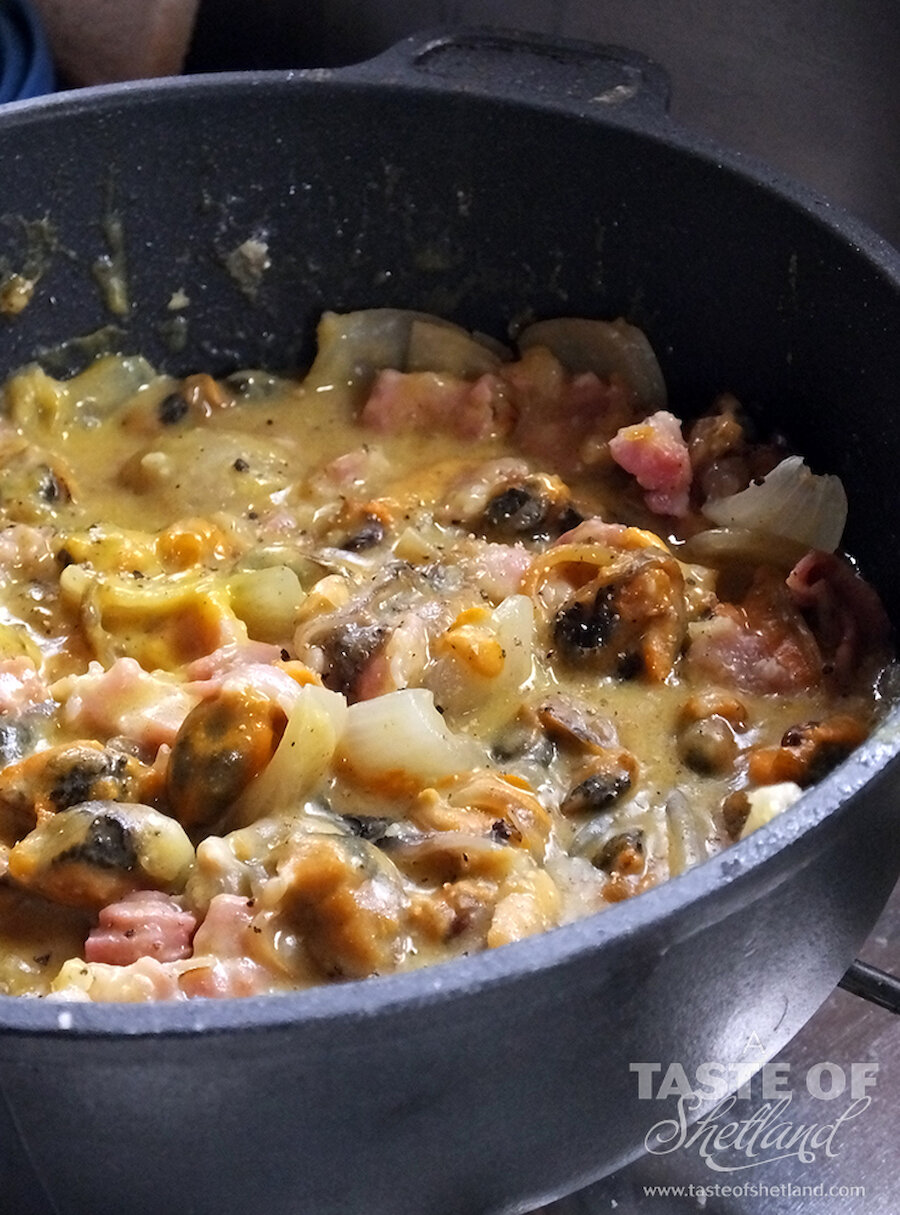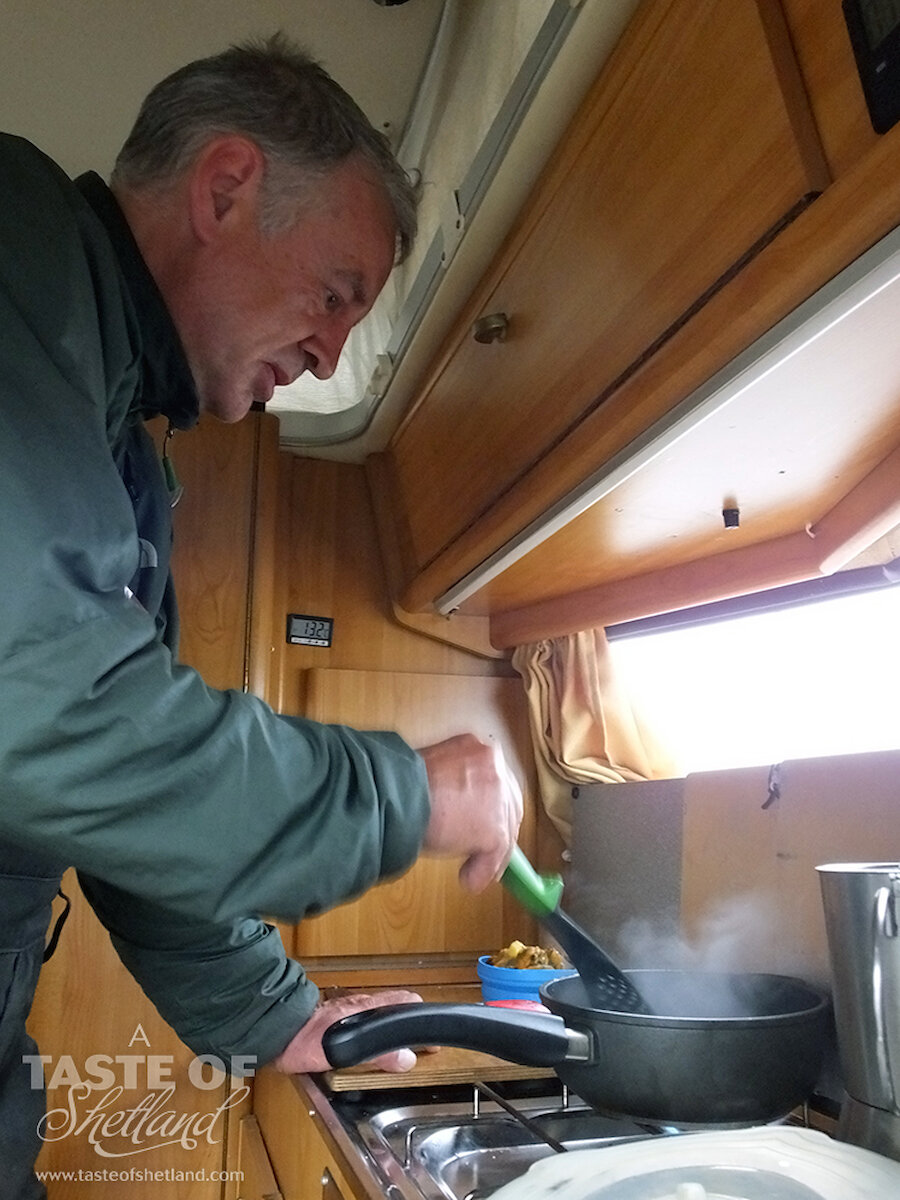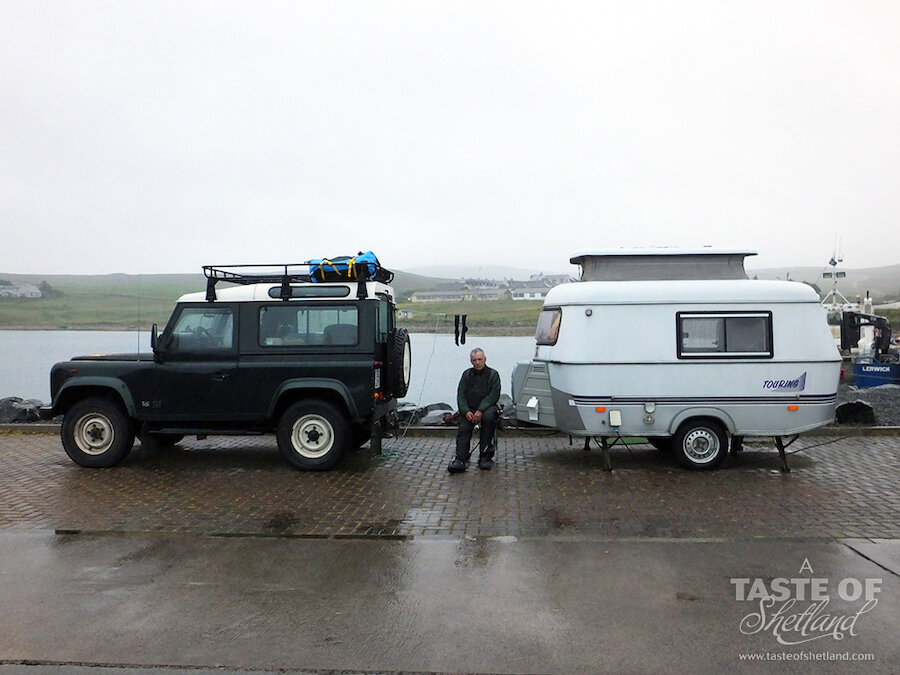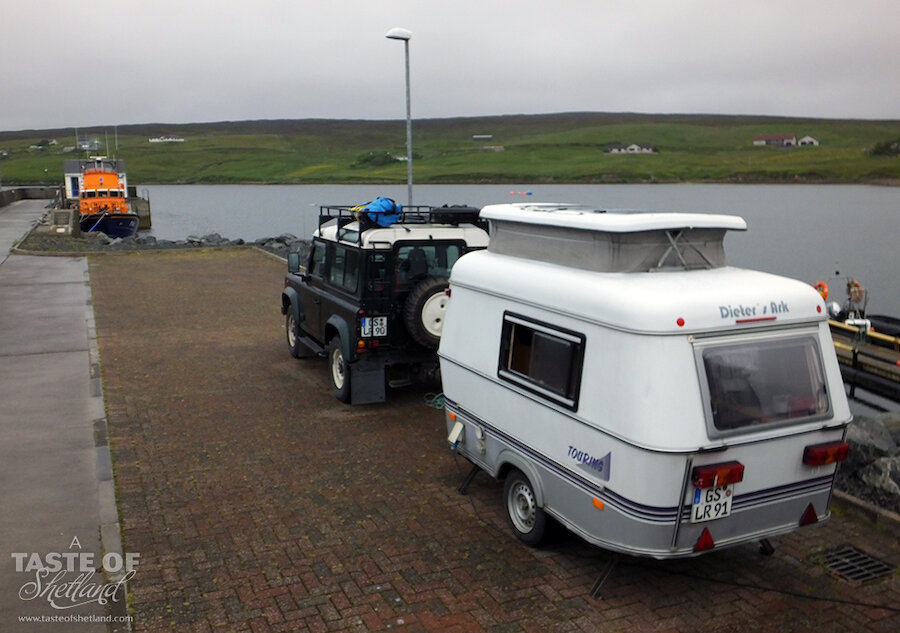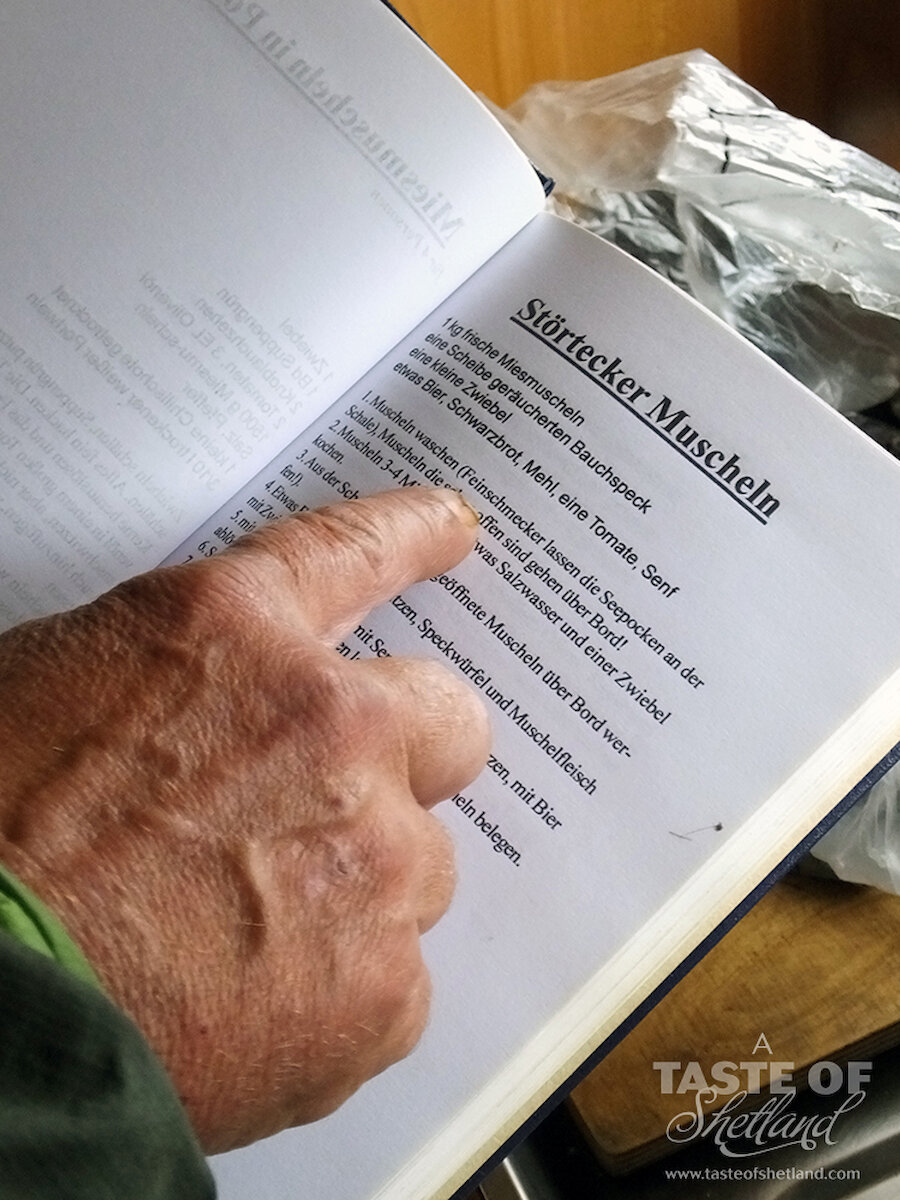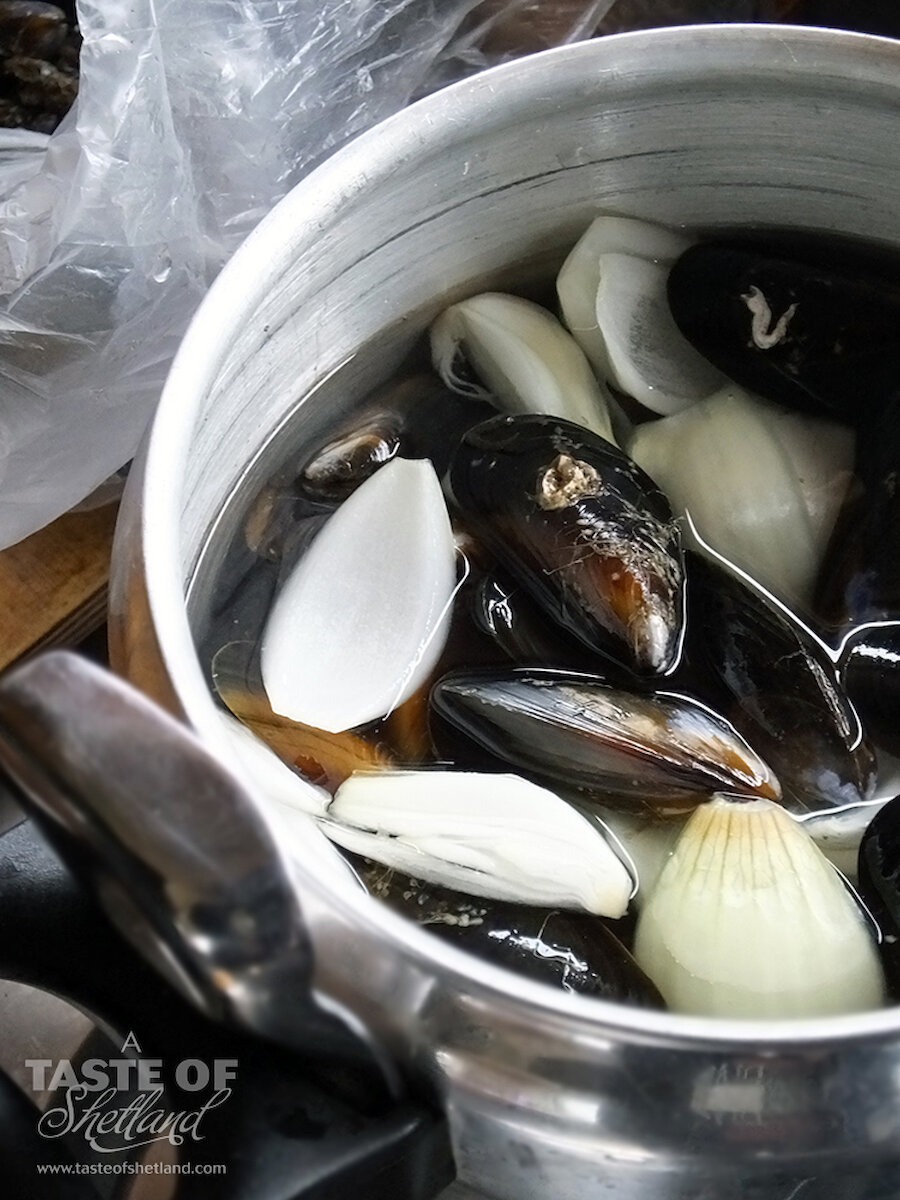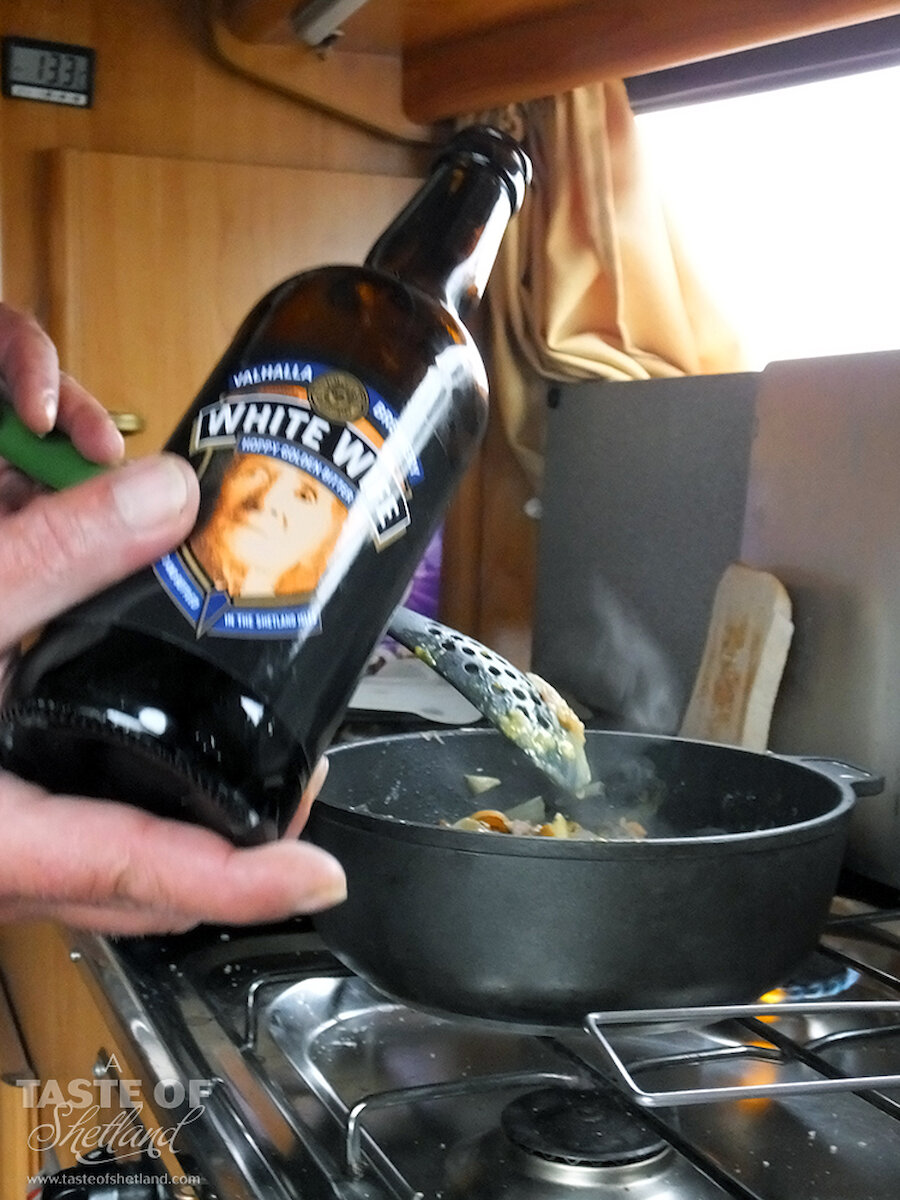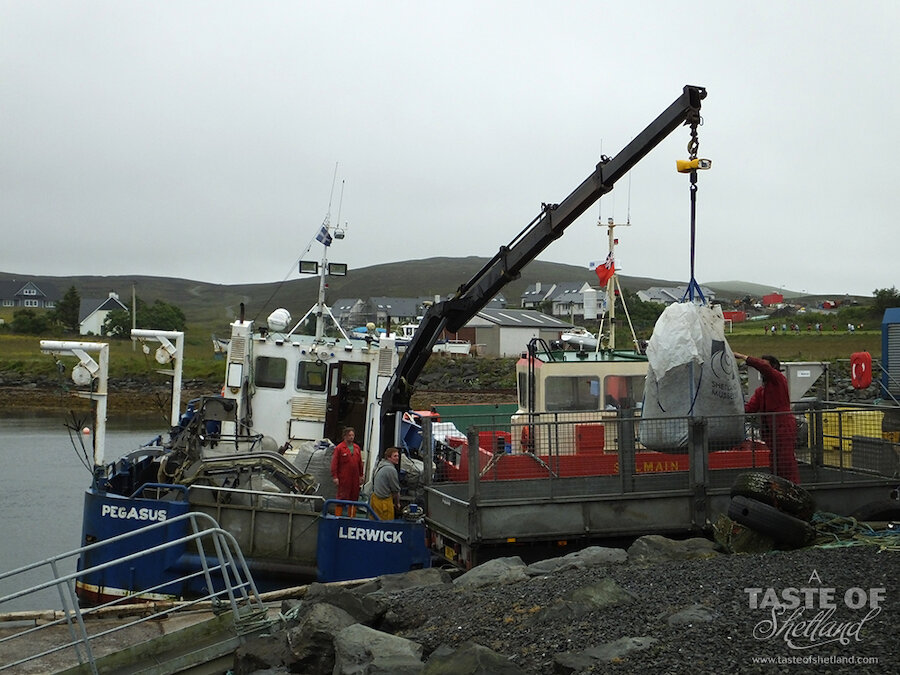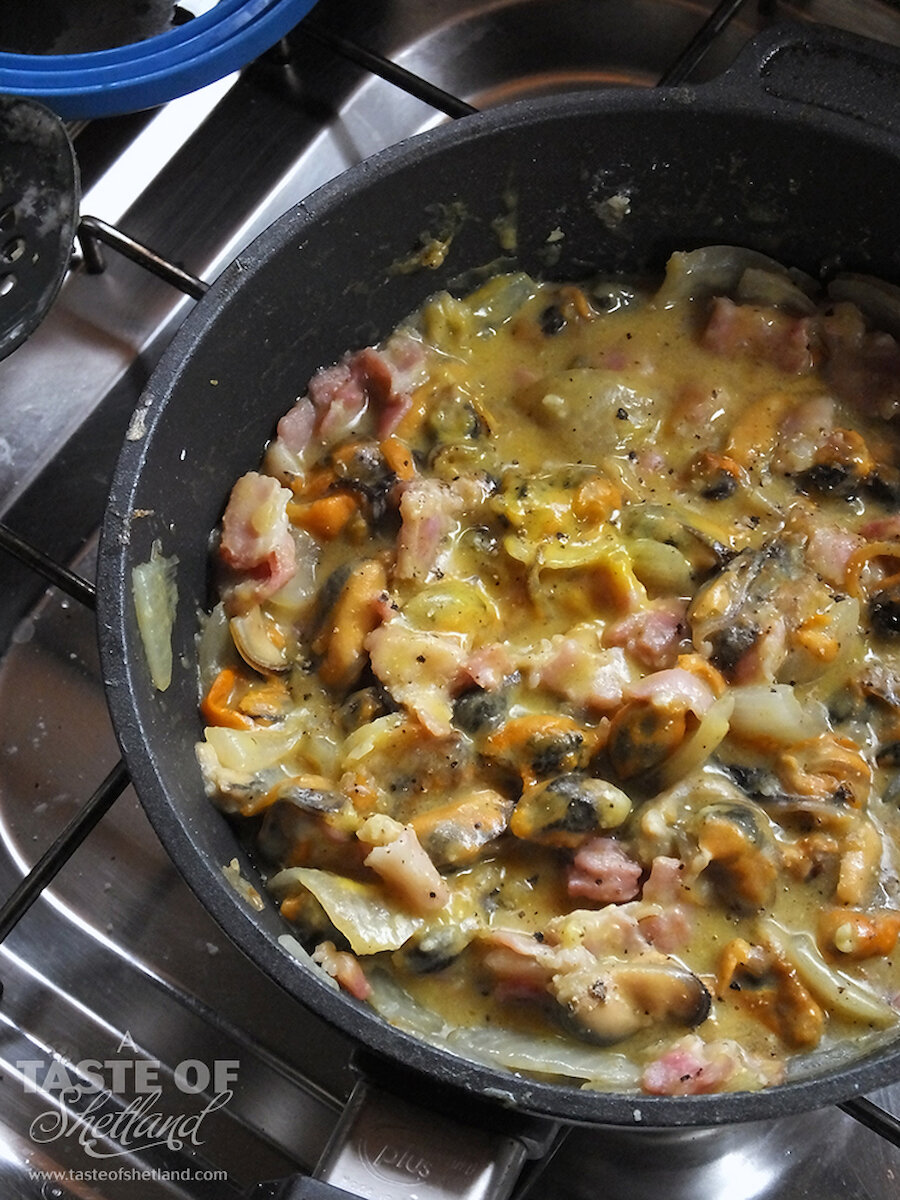Sometimes being inherently nosy pays off. For the last two weeks an Eriba touring caravan has been parked up on our village pier, towed behind a weathered old Landrover which definitely has stories to tell. Us locals have been eyeing it up with quiet, reserved curiosity.
The thing about living in a small rural village is that you can't help but bump into folk regularly. Conversations are struck in the most random of locations, over fences, while out walking up in the peat hill, or, the most popular location - the village shop.
Over the last fortnight our rural visitor has become a familiar face. We say hello, chat about the weather and tentatively get to know each other over the bakery aisle (he's rather fond of Hovis bread, something he can't get in his native Germany).
The other day he was looking for a thickener for a stew and his German-English translation wasn't coming up with the right word. It wasn't flour, it was something else - corn flour, we concluded after a brief discussion.
That's where my inherent nosiness came in.
"What are you making?" I had to ask.
"A stew," he replied, "with mussels, bacon, onion and mustard."
My ears perked up (I was sold at bacon and onion), and a few hours later I found myself sitting in a tiny one man caravan having my dinner cooked for me.

